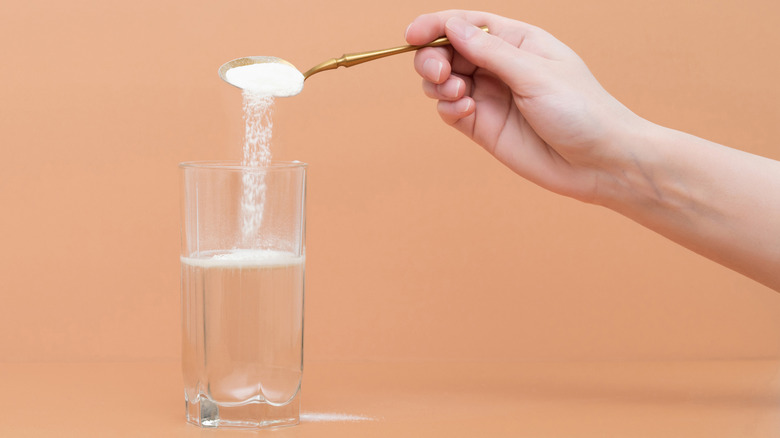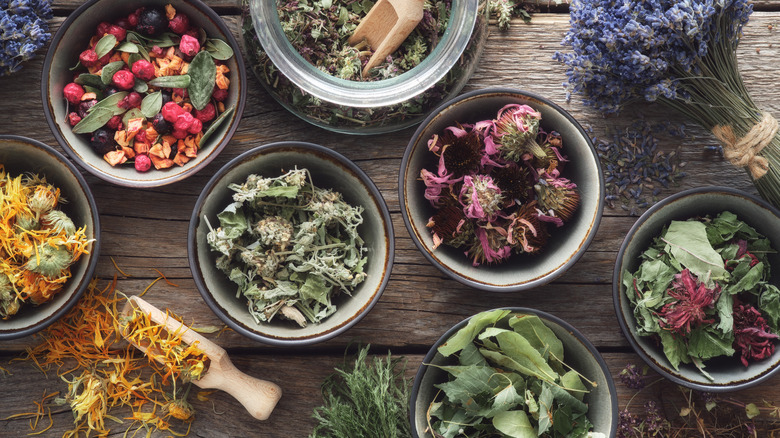Why You Should Be Wary Of Vegan Collagen
Sugar-free. Low fat. Zero carbs. Diet trends are a dime a dozen. These days, the plant-based or vegan label reigns supreme. Although veganism may not be ideal for everyone, the lifestyle does offer some lofty perks. According to Healthline, going vegan can help you consume ample nutrients, lose excess weight, and reduce your risk of diabetes and heart disease, among other rewards. Not to mention, a 2019 study published in the European Journal of Clinical Nutrition found that people on vegetarian or vegan diets had a smaller carbon footprint than meat-eaters and generated up to 60% less greenhouse gas emissions.
Even with such bountiful benefits, there are some things that veganism can't provide. MedicalNewsToday explains that vitamin D3, for example, comes from animal sources, while D2 is found in plants and yeast. Another supplement you can't get from plants is collagen. Before you throw out the "vegan collagen" you just bought, allow us to explain.
Animal collagen vs. plant-based collagen
According to the Harvard T.H. Chan School of Public Health, collagen is a protein found in the body that makes connective tissue. Your bones, skin, muscles, tendons, and cartilage rely on collagen for strength and a certain bounce-back ability (which is why it's such a popular anti-aging skincare product). Bone broth, beef, gelatin, and the bones and skin of fresh and saltwater fish are rich in collagen.
With that being said, vegan collagen isn't a source of the protein, but it helps boost your body's collagen production. Certain herbs, fruits, and vegetables can all make this happen. EatingWell lists berries, broccoli, and aloe vera juice as part of its top 10 best foods for boosting collagen production.
Well+Good adds that our natural collagen production begins to slow down after we turn 35 and recommends 5 herbs to keep it going. The herb He Shou Wu (also known as Fo-Ti) is thought to prevent and sometimes reverse gray hair. Horsetail is high in silica, which supports blood vessels, tendons, and muscles. Gynostemma (or jiaogulan) is an herb that's similar to but more powerful than ginseng and has high levels of antioxidants that fight free radicals. Rich in chlorophyll, nettle is a great choice if you're looking for a multivitamin in herbal form. Calendula acts as a healing agent for the body and contains amino acids, as well as anti-inflammatory properties.


